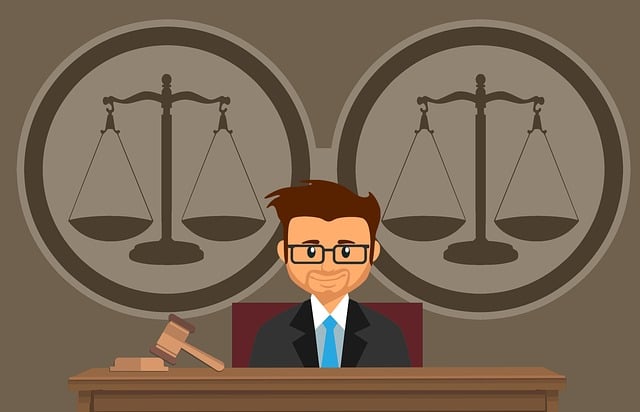Fraudulent financial practices like investment scams, mortgage fraud, and identity theft pose significant risks in today's economy. Protecting Legal Rights in Property Ownership Conflicts is crucial through verification of investments, detailed record-keeping, and diligent investigative processes. Jury trials hold perpetrators accountable. Red flags to watch out for include unexpected payment demands and discrepancies in property descriptions. Consulting a general criminal defense attorney or white-collar defense expert is advisable upon suspicion of fraud. Meticulously reviewing documents and seeking legal guidance ensure the protection and fair resolution of property ownership conflicts.
Fraudulent financial practices pose significant threats to property ownership, leading to complex legal disputes. Understanding common schemes and recognizing red flags is crucial for both individuals and businesses. This article delves into the intricacies of fraudulent financial practices, offering insights on identifying signs of fraud in real estate transactions. Moreover, it explores the legal frameworks protecting property ownership and provides steps to enforce your legal rights in resolving conflicts. By understanding these aspects, you can better navigate and safeguard your property interests.
- Understanding Fraudulent Financial Practices: Definition and Common Schemes
- Legal Frameworks and Protections for Property Ownership Disputes
- Recognizing Red Flags: Signs of Fraud in Real Estate Transactions
- Enforcing Your Legal Rights: Steps to Resolve Property Ownership Conflicts
Understanding Fraudulent Financial Practices: Definition and Common Schemes

Fraudulent financial practices are a significant concern in today’s economic landscape. These activities encompass a wide range of illegal actions aimed at deceiving individuals, businesses, or financial institutions for personal gain. Understanding these schemes is crucial to protect one’s legal rights, especially in property ownership conflicts. Common fraudulent practices include investment scams, mortgage fraud, and identity theft, where con artists exploit the vulnerabilities of their targets.
By recognizing common schemes, individuals can navigate financial transactions with caution. This involves verifying the legitimacy of investments, ensuring transparent record-keeping, and maintaining thorough documentation. In cases of suspected fraud, all stages of the investigative and enforcement process must be followed diligently. Whether involving corporate or individual clients, jury trials play a critical role in holding perpetrators accountable and safeguarding legal rights in property ownership conflicts.
Legal Frameworks and Protections for Property Ownership Disputes

In the context of fraudulent financial practices, understanding one’s legal rights in property ownership conflicts is paramount. Many countries have robust legal frameworks designed to protect individuals from such disputes, ensuring fair and transparent transactions. These laws provide a safety net for property owners, offering various remedies and protections against unethical dealings. For instance, strict regulations govern real estate transactions, including comprehensive disclosure requirements and penalties for fraud.
An unprecedented track record of successful property ownership dispute cases across the country highlights the effectiveness of these legal rights. Individuals involved in such conflicts can leverage general criminal defense strategies, which often include meticulous documentation, expert testimony, and robust legal representation. This ensures that not only are their property rights safeguarded but also that justice is served in instances of fraudulent financial practices.
Recognizing Red Flags: Signs of Fraud in Real Estate Transactions

Recognizing fraudulent practices in real estate transactions is a crucial step in protecting your legal rights as a property owner. Some red flags to look out for include unexpected or unusual demands for payments, delays in finalizing documents, and discrepancies in property descriptions or titles. Scrutinize contracts thoroughly, paying attention to any vague or overly complex language that might indicate an attempt to hide potential issues.
In cases of suspected fraud, whether during the initial buying process or later, consulting a general criminal defense attorney is advisable. They can guide you through all stages of the investigative and enforcement process, ensuring your rights are protected in high-stakes cases involving property ownership conflicts.
Enforcing Your Legal Rights: Steps to Resolve Property Ownership Conflicts

When faced with property ownership conflicts, understanding and enforcing your legal rights is paramount. The first step involves reviewing all relevant documentation meticulously, ensuring every detail is accurate. This includes examining contracts, titles, and any previous agreements to establish a clear chain of ownership. If discrepancies or potential fraud are suspected, seeking legal counsel from experienced professionals in both white-collar defense and corporate law is crucial.
These experts can guide you through the process of resolving conflicts, whether they involve disputes between corporate and individual clients or complex issues within philanthropic and political communities. They will help navigate the legal system, protect your interests, and ensure that justice is served. The goal is to reach a fair resolution, protecting your rights and maintaining integrity in property ownership matters.
Fraudulent financial practices pose significant risks in real estate transactions, making it crucial for individuals to understand common schemes and recognize red flags. By being vigilant and aware of potential scams, buyers and sellers can protect their legal rights in property ownership conflicts. Understanding the relevant legal frameworks empowers everyone involved to navigate these complex issues effectively, ensuring fairness and justice. It’s essential to take proactive steps to resolve disputes, as swift action is key to mitigating financial losses and safeguarding property interests.






